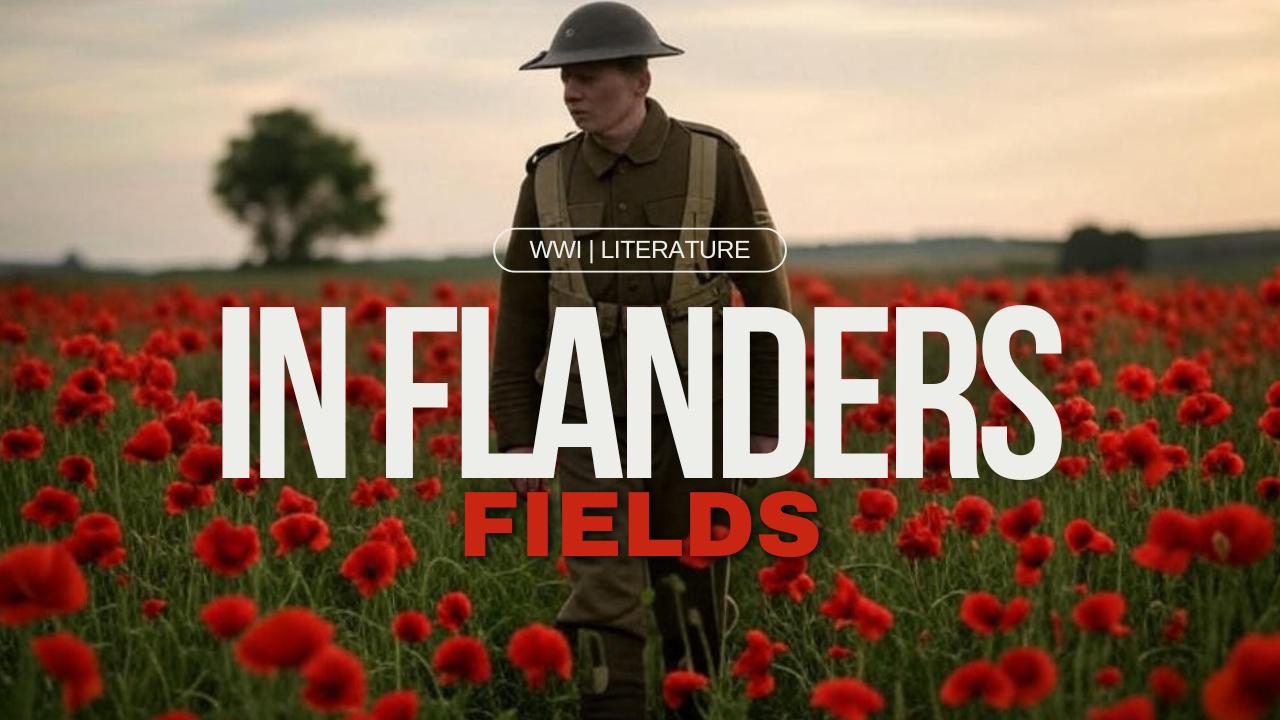In Flanders Fields

Written by Canadian physician and soldier, Lt. Col. John McCrae during the First World War, In Flanders Fields is a powerful poem composed on May the 3rd, 1915, during the Second Battle of Ypres, after McCrae witnessed the death of his close friend, Lt. Alexis Helmer. Succinctly capturing the sorrow, sacrifice and legacy of fallen warriors, In Flanders Fields remains one of the most famous war poems in world literature, symbolizing the high cost of war, while inspiring the tradition of wearing red poppies to honor the fallen.
Consisting of three stanzas with a simple yet suggestive rhyme scheme of AABBA AABBA AABB, the poem evokes a solemn, urgent tone that resonates with both grief and duty, remembrance, sacrifice and a call to arms for the living.
In Flanders fields the poppies blow
Between the crosses, row on row,
That mark our place; and in the sky
The larks, still bravely singing, fly
Scarce heard amid the guns below.
The opening line sets the location in the Flanders region of Belgium, where the three battles of Ypres took place over the course of the war. The peaceful image of poppies and chirping larks amidst the carnage of war introduces the reader to the grim life and death reality of combat, as well as the persistence of life amidst so much carnage, loss and destruction.
We are the Dead. Short days ago
We lived, felt dawn, saw sunset glow,
Loved and were loved, and now we lie
In Flanders fields.
In the second stanza, the fallen soldiers speak directly to the reader, reminding us that these fallen men once had a life as full as our own, while the past tense use of “lived” and “loved” adds both an emotional weight, forcing the reader to acknowledge the personal and all-encompassing sacrifice of their deaths.
Take up our quarrel with the foe:
To you from failing hands we throw
The torch; be yours to hold it high.
If ye break faith with us who die
We shall not sleep, though poppies grow
In Flanders fields.
The final stanza of the poem shifts the emphasis from mourning to a direct call to action for the living to continue the fight, which in turn portrays the war as a necessary struggle, while the torch metaphor represents the reader’s duty to honor the fallen, for if the living fail to carry on the fight after the sacrifices of the fallen, then the dead will be deprived of their eternal rest.
Since its creation, In Flanders Fields and the wearing of a red poppy has become an enduring symbol of remembrance for all war veterans, both the living and the fallen, while the poem is frequently read aloud at memorial services, reminding both the protected and veterans alike about the high cost of war and the responsibility of the living to honor the past.
